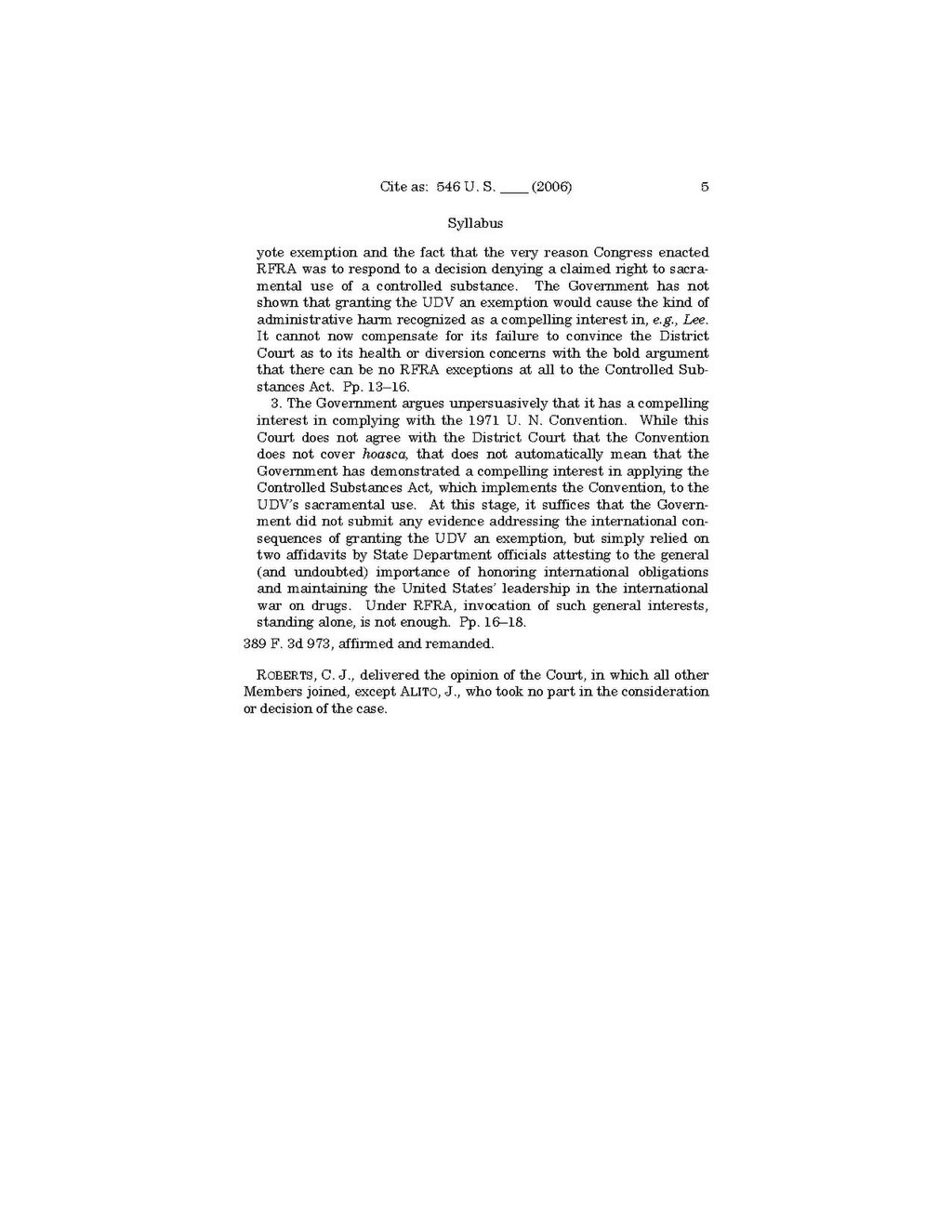Syllabus
yote exemption and the fact that the very reason Congress enacted RFRA was to respond to a decision denying a claimed right to sacramental use of a controlled substance. The Government has not shown that granting the UDV an exemption would cause the kind of administrative harm recognized as a compelling interest in, e.g., Lee. It cannot now compensate for its failure to convince the District Court as to its health or diversion concerns with the bold argument that there can be no RFRA exceptions at all to the Controlled Substances Act. Pp. 13–16.
3. The Government argues unpersuasively that it has a compelling interest in complying with the 1971 U. N. Convention. While this Court does not agree with the District Court that the Convention does not cover hoasca, that does not automatically mean that the Government has demonstrated a compelling interest in applying the Controlled Substances Act, which implements the Convention, to the UDV's sacramental use. At this stage, it suffices that the Government did not submit any evidence addressing the international consequences of granting the UDV an exemption, but simply relied on two affidavits by State Department officials attesting to the general (and undoubted) importance of honoring international obligations and maintaining the United States' leadership in the international war on drugs. Under RFRA, invocation of such general interests, standing alone, is not enough. Pp. 16–18.
389 F. 3d 973, affirmed and remanded.
Roberts, C. J., delivered the opinion of the Court, in which all other Members joined, except Alito, J., who took no part in the consideration or decision of the case.
